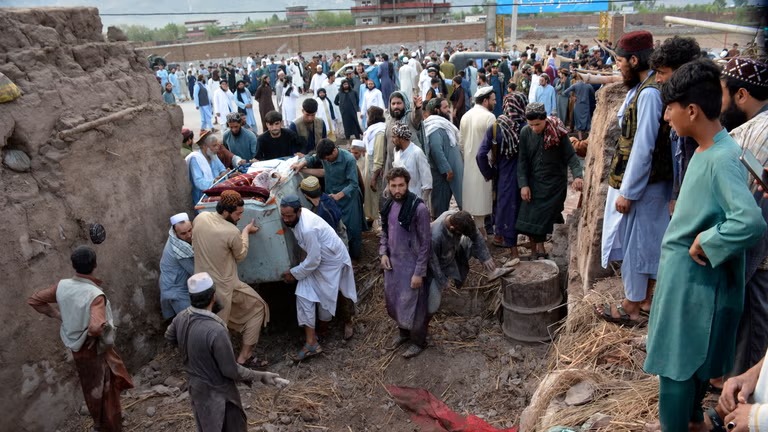
Ministry spokesman Sharafat Zaman, said the casualty figures are expected to rise as search and rescue efforts continue.
The storm, which brought heavy rain, battered Jalalabad city, Surkh Road, Bati Kot, and Behsud districts.
Local officials reported widespread damage to homes, with reports of an entire family of 11 buried under debris in one incident in the Surkh Road district.
Government agencies are scrambling to organize rescue efforts and provide aid.
Emergency meetings were held with aid organizations to request additional assistance.
The storm’s destructive power did not only result in fatalities, but ripped through the area’s infrastructure, with around 60 electricity pylons toppled, leaving many areas without power.
Meanwhile, local reports also detailed damage to trees, crops, telecommunication systems, and infrastructure projects.
With the storm’s impact still unfolding, Nangarhar faces a long and difficult recovery process.
Afghanistan is prone to extreme weather events such as floods and droughts.
Experts blame the climate crisis for this.
According to the UN organizations, Afghanistan ranks as the world’s sixth most vulnerable country to climate change.
However, it is one of the smallest contributors to greenhouse gas emissions.
After decades of wars and conflicts, the country is ill-prepared to cope with the consequences of climate change.
The country is still reeling from multiple earthquakes earlier this year and severe flooding in March.
NAN




